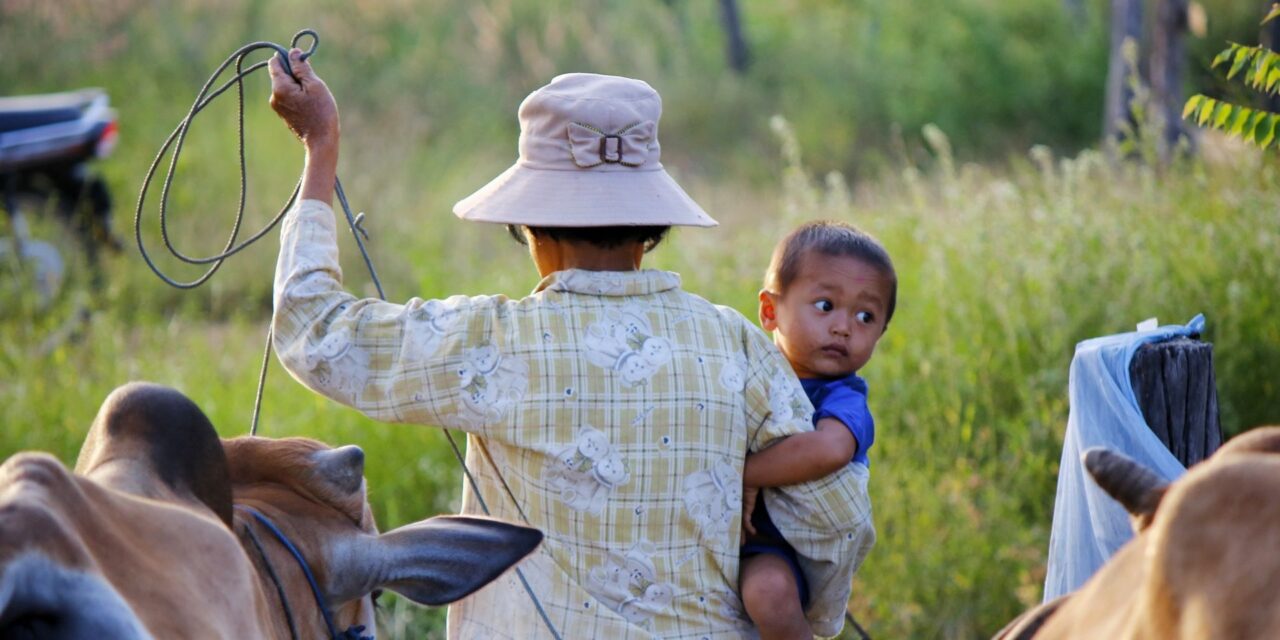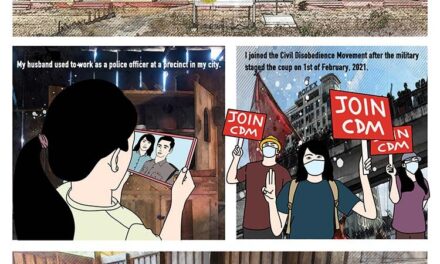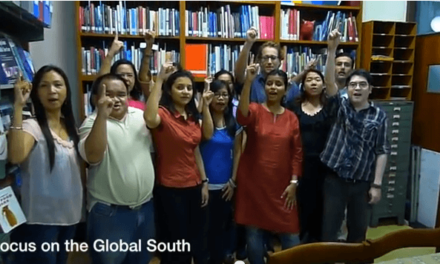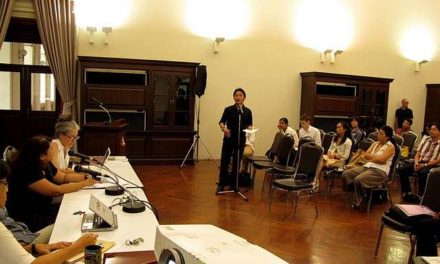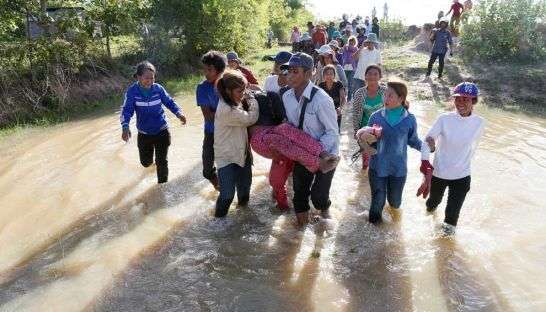2 May 2020
As in other countries, COVID-19 has not only shaken Cambodia’s health system, it has also exposed the underlying flaws in the country’s current economic model, which are resulting in livelihood crises for many people. The economic impacts of the pandemic are severe on the working-classes and small businesses, especially women in both formal and informal economic sectors, rural communities, sex and entertainment work, and the garment manufacturing sector.
To date, 122 people are reported to be COVID-19 positive in Cambodia with zero deaths, 120 people cured and returned to their homes, and two patients receiving treatment at the public hospital.[1]Hotels, public schools and universities across the country have been prepared as spaces for both, quarantine and to house COVID-19 patients if needed. The Cambodian Government has issued a number of orders, statements and press-releases almost everyday to prevent the disease from spreading. A law declaring a state of emergency[2] has been approved by the representative of the King (Head of state) on Thursday 30th April.[3] The provisions of the law have raised numerous concerns among civil society and human rights experts about their legal implications. Further, the government has taken many actions quickly but without providing protection and damage prevention for those who bear the brunt of the economic impacts.
The sudden closure of Karaoke clubs, night-clubs and beer gardens, although temporary according to the Ministry of Tourism’s notification[4]has hit the entertainment industry hard, where most of the workers are women. Firstly, women workers suddenly lost their jobs and incomes, and with no other livelihood options, were placed in desperate situations because many of them have heavy debt repayment burdens. Some women entertainment workers are already experiencing evictions because they cannot pay the rents for their rooms and are also facing food shortages. Secondly, the sudden closure of the entertainment sector did not provide any damages or compensation packages to the workers, or assurance to them of reinstatement of employment once the sector opens up again.
The impacts of the pandemic on the garment sector are different and more complex. This sector already expected to be hit because of the European Union’s (EU) Everything But Arms (EBA) decision on restricting import-tax exempted garments to EU markets. Garment workers, more than 80 percent of who (from a total workforce of about 800,000) are women, will be negatively affected by both, the EBA decision, as well as the severe impacts of the pandemic in the global north, since Cambodia’s garment industry revenues depend very much on the markets of northern countries. For some garment workers, factory closures will lead to the loss of jobs and incomes. For some others who are working in factories operating at half capacity, they are dependent on their factory wages and subsidies from the government to make ends meet. But in both cases, women are experiencing difficulties in paying their room rents and repaying their debts to Micro-Finance Institutions (MFIs), commercial banks and the money lenders. For many other women workers who still have full employment, the uncertainties facing the garment sector because of the EBA decision and potential impacts of the pandemic have triggered anxiety and panic about their future job security and livelihoods.
Testimony from a migrant worker in Cambodia
Ms. Chamroeun lives at Beng Commune, Banteay Chmar District, Oddar Meanchey Province.She has been working in Thailand for a long time with her husband as a construction worker. She went there because her family does not have enough farmland for agriculture. During the COVID-19 outbreak, her husband and she decided to come back to their village in Oddar Meanchey. Since she returned from Thailand, she does not know what job she can do since she had been living and working as a construction worker for so many years in another country and her family still does not have enough farm land to live off.
Many Cambodian people have lost livelihoods as migrant workers living in Thailand and also in Cambodia. They have no money to send back home to support their families and most important, no money to repay their debts to Micro FinanceInstitutions (MFIs).
Ms. Chamroeun think that the travel bans and country lockdowns are not fair for the poor sincethe governments have no proper plans to feed and support people. Now she is making Khmer coconut pancakes to sell in her village, but that hardly brings any income. And she will become a laborer again for anyone inher village who needs labour.
Many garment workers are also facing trouble because of the travel ban imposed by the government during the Khmer[5]New Year, because of which they were targeted as potential transmitters of COVID-19. The garment workers were ordered to report to the government authorities about where they went during the ban period. Owners of the places where the workers rent rooms were instructed to not allow workers back to their rooms unless they show that they are COVID-19 negative, or they have been through 14 days in quarantine. Workers’ names and ID cards have been recorded and they are not allowed to go to work if they took leave during the ban period. Some workers were put in quarantine and tested for COVID-19. Reports indicate that there are clearly double-standards and differential treatment of people who travelled across provinces during the Khmer New Year ban period with regard to quarantines and other restrictions. These orders specifically targeted garment sector workers. At the same time, no measures have been put in place to protect these workers from catching the virus. For example, the trucks used to transport workers from their rooms to workplaces are extremely crowded.
* Sokunthy Ros is Head of the Cambodia office of Focus on the Global South
[1]http://www.cdcmoh.gov.kh/images/Document/Coronaviruses/COVID 19/Press_Release/Press_04052020.pdf
[2]https://cambodianess.com/article/constitutional-council-draft-law-on-state-of-emergency-complies-with-constitution;
[3]https://www.khmertimeskh.com/50718535/state-of-emergency-draft-signed-into-law/
[4]https://opendevelopmentcambodia.net/announcements/announcement-on-the-temporary-suspension-of-all-ktv-and-cinema-across-the-country/
[5]https://opendevelopmentcambodia.net/announcements/government-order-on-the-restriction-of-travelling-throughout-nationwide-for-preventing-and-curbing-the-widespread-of-covid-19/
Photo by Ridan Sun – Focus on the Global South

